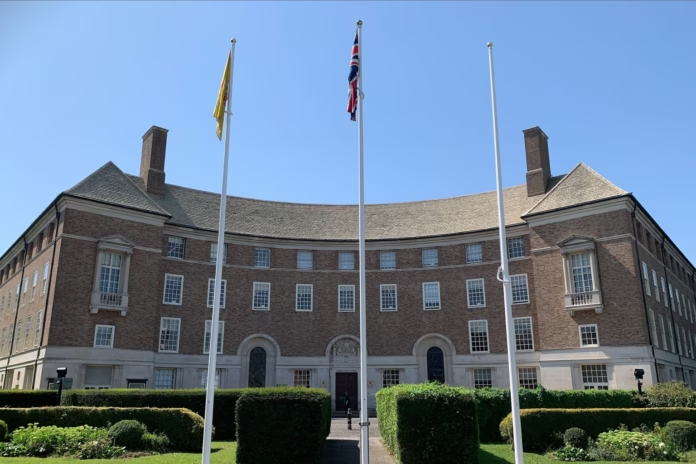South Cambridgeshire District Council has been issued with a Best Value Notice by the Department for Levelling Up, Housing and Communities (DLUHC).
The notice represents a formal notification of the department’s concerns over the authority’s trial of a four-day working week and its compliance with its Best Value Duty under the Local Government Act 1999.
DLUHC is concerned that the “removal of up to a fifth of the capacity of the council means that it is unlikely, in aggregate, for it to be able to support continuous improvement”.
The department also said the “insistence” of the council to continue the trial “contrary to the guidance issued” means South Cambridgeshire might not be “fully analysing the impacts of the trial on services or the productivity of its workforce”.
The working arrangements could impact on the delivery of the council’s Best Value Duty, DLUHC added.
Local government minister Lee Rowley has been vocal with his criticism of South Cambridgeshire’s trial. At Room151’s Local Authority Treasurers’ Investment Forum and Finance Directors’ Summit in September he said now was not the time for local government to “start experimenting” and warned that while the authority had so far “not listened, they will do so”.
Rowley has also written twice to the authority requesting it ends the trial.
The Best Value Notice represents a request that the authority engages with DLUHC to provide assurance of improvement. If South Cambridgeshire continues the trial, the department is now “formally requesting additional detail on its impact, both on individual employee productivity, the council and the provision of services as a whole”.
South Cambridgeshire is now expected to demonstrate how it is delivering its Best Value Duty, meaning it must provide evidence of impact and how it is evaluating this duty in relation to the trial.
In a letter to Liz Watts, South Cambridgeshire’s chief executive, Max Soule, deputy director, local government stewardship at DLUHC, wrote: “[The authority must] make arrangements to secure continuous improvement in the way in which its functions are exercised, having regard to a combination of economy, efficiency and effectiveness; that it has in place and properly deploys an effective internal control environment to safeguard the use of resources, and clear and effective processes to secure value for money; [and] that human resources and fixed assets are managed efficiently and effectively.”
South Cambridgeshire has been asked to work with an independent expert in considering data and making assessments about impacts and Best Value. It must also respond to the department’s requests for information “fully and promptly”, while completing a data form on a weekly basis on staffing, costs, service delivery, performance against a range of relevant KPIs, and resident feedback.
“Should it be necessary, based on our initial evaluation of the data you provide, we reserve the right to request further information to ensure a proper evaluation takes place,” Soule added.
The Best Value Notice will remain in place for six months, to cover the remainder of the current trial and allow for further data analysis. The notice can be reissued at that point, or withdrawn or escalated at any point based on the available evidence.
—————
FREE weekly newsletters
Subscribe to Room151 Newsletters
Follow us on LinkedIn
Follow us here
Monthly Online Treasury Briefing
Sign up here with a .gov.uk email address
Room151 Webinars
Visit the Room151 channel














